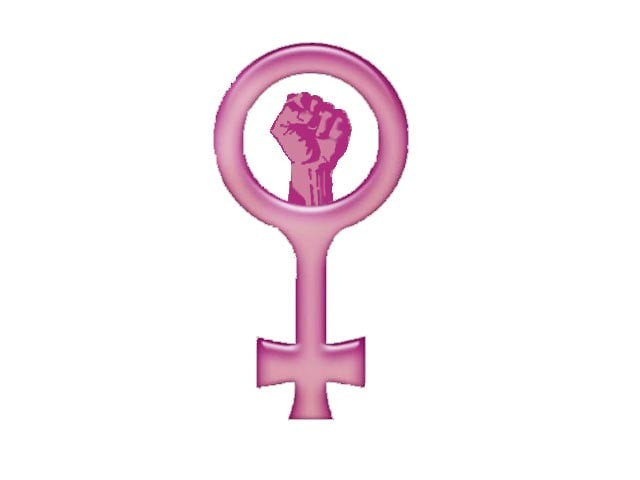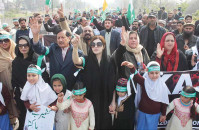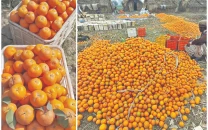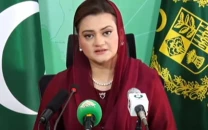Gender intervention: Change in socio-economic system to improve situation
Various studies on women empowerment in the post-flood scenario launched.

To identify areas of concern and potential for women empowerment in the flood-hit areas, Aurat Foundation on Tuesday launched scoping desk studies. The initiative was taken by the Gender Equity Program (GEP), a USAID-funded project.
The event titled “Mainstreaming Research in Gender Interventions” was attended by Catherine Johnson, Senior Advisor, Democracy and Governance, USAID, Naeem Mirza, Chief Operating Officer Aurat Foundation, Simi Kamal Chief of Party Gender Equality Programme along with gender experts which included Dr Rubina Saigol, Dr Rakhshinda Perveen, Nazish Brohi and Rafiq Jaffer.
Studies titled “Effects of the 2010 Floods on Women in Pakistan”, “Gender-Based Violence in Pakistan”, “Women’s Empowerment in Pakistan”, “Capacity of Pakistani Organizations to carryout Gender Equity Initiatives”, and “Gender Equity-Justice and Governance in Pakistan” were presented and discussed at the gathering.
Women’s Empowerment in Pakistan, “a scoping study” reveals that the studies done on women workforce and empowerment are inconclusive. It holds gender inequality and the perception of the women as dependents to be the major barriers in their struggle for empowerment. Women tend to get menial and low-paid jobs even though they spend more time and energy working. Most of the women, according to the report, remain uninformed about the opportunities and have neither ownership nor control over the resources.
Women’s mobility is restricted, their skills are not always marketable and their voices are usually not heard, the study said.
It added that the life expectancy of women remains poor in Pakistan. Malnutrition is a common problem for females across the country, especially among young girls. The main reason for this is cultural and social discrimination in the distribution of household resources, it was discussed.
Rape, incest, sexual abuse and harassment continue to affect women’s psychological, emotional and physical health.
The rate of abortion remains as high as 190,000 annually, as women have no control over their reproductive capacities and men fail to take responsibility for contraception.
The Pakistan Medical Society has described anemia, pregnancy risk, menopausal disturbances and heart diseases as major causes of morbidity and mortality among Pakistani women.
Ministry of Health depends upon donors to implement programmes and policies due to severe shortage of funds, which in several cases delays the tasks, says the study.
The study recommends that there is a need for capacity building of government and civil society organizations in order to ensure gender equality.
Catherine Johnson said, “After keenly reading through all the studies, I see a lot of space for policy discourse and legislation. Gender-based violence in Pakistan is blocking women’s progress in socio-political and economic fields.”
Naeem Mirza said that research is a serious subject as it provides grounds for policy discourse, awareness and good practices.
While talking to The Express Tribune, Simi Kamal said one of the key results of their study was that women lack information of and access to relief and compensation services.
She expressed her concern over the unavailability of accurate and primary statistics available on gender issues. Besides, she termed the police and media “inactive” over the issue, which is not helping the situation.
Speaking on the topic, Rakhshanda Parveen added, “There are some minor forms of violence against women which should be reported too but they are ignored which makes situation worst.”
Published in The Express Tribune, June 8th, 2011.



















COMMENTS
Comments are moderated and generally will be posted if they are on-topic and not abusive.
For more information, please see our Comments FAQ